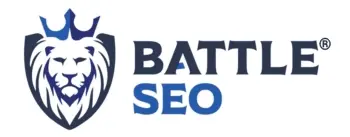As a business owner, it’s essential to understand the importance of SEO. Search engine optimization (SEO) is one of the most powerful tools at your disposal to drive organic traffic to your website and increase visibility. A critical aspect of SEO is on-page optimization, or “on-page SEO”. On-page SEO refers to optimizing individual web pages to rank higher and drive more organic traffic to a website.
On-page SEO is integral to any successful search engine optimization strategy because it helps search engines understand what a webpage is about, which can influence how it ranks in search results. It’s also vital for businesses to use on-page SEO to stand out from their competitors and reach potential customers.
In this article, we will explore what on-page SEO is, what elements are included in on-page SEO, and why it’s so crucial for businesses. We will also provide tips for implementing effective on-page SEO strategies to help you get ahead of the online competition.
What Is Onpage SEO?
On-page SEO is essential to any website’s search engine optimization (SEO) strategy. It involves optimizing a website’s content and structure for users and search engine crawlers, resulting in higher rankings in the SERPs. On-page SEO focuses on improving the visibility of a website to search engines by analyzing its content, HTML code, and other elements such as meta tags and link structure.
When done correctly, onpage SEO can help a website rank higher in the SERPs, making it easier for potential customers to find it. This can be especially beneficial for small businesses that may not have the resources or budget to invest in more expensive SEO techniques like link-building or paid advertising. Additionally, on-page SEO helps ensure that a website is optimized for devices like desktop computers, tablets, and smartphones. This can improve the user experience and make it easier for people to access your site from any device.
Onpage SEO is essential for any business looking to achieve success online. With the proper implementation of an onpage SEO strategy, a company can increase its visibility to potential customers while ensuring its content is optimized for both users and search engine crawlers. This can be invaluable for businesses looking to expand their reach online and maximize their ROI from their digital marketing efforts.
Benefits Of Onpage SEO
 Onpage SEO is essential for optimizing a website for search engine visibility. It involves making updates and changes to the website’s content, structure, and code to make it easier for search engines to find and index it. The benefits of onpage SEO are numerous and can significantly improve a website’s ranking in the SERPs (Search Engine Results Pages).
Onpage SEO is essential for optimizing a website for search engine visibility. It involves making updates and changes to the website’s content, structure, and code to make it easier for search engines to find and index it. The benefits of onpage SEO are numerous and can significantly improve a website’s ranking in the SERPs (Search Engine Results Pages).
Firstly, onpage SEO helps to ensure that your website is properly indexed by search engines, allowing them to serve up relevant results when users enter queries related to your site. Onpage SEO also helps you create content that is optimized for specific keywords or phrases, allowing search engines to quickly identify what topics your content covers. This enables users find you more easily when searching for information related to those topics.
Finally, onpage SEO can help improve the overall user experience of a website. By ensuring that pages load quickly and have easy-to-read and navigate content, visitors will be more likely to stay on the page longer and interact with the content. This can lead directly to an increase in conversions – turning visitors into customers – and higher rankings in SERPs due to increased engagement metrics such as time on page or bounce rate.
In short, implementing onpage SEO tactics can be highly beneficial when it comes not just to boosting rankings but also improving user experience, which drives conversions.
Key Elements Of Onpage SEO
Onpage SEO is a crucial component of digital marketing. It focuses on optimizing individual web pages to boost the website’s ranking in the search engine result pages (SERPs). This optimization involves changing various elements on the webpage, including title tags, meta descriptions, internal linking, headings, images, and content. By taking advantage of these key elements of onpage SEO, businesses can improve their visibility online and increase their chances of appearing in search results.
The title tag is one of the most important aspects of onpage SEO. This HTML element provides a brief description of the page’s content. It helps search engines understand what your page is about and how it should be indexed. Furthermore, it increases your click-through rate (CTR) since it appears as a link in SERPs. Additionally, optimizing title tags for specific keywords can help you rank higher in SERP listings for those keywords, which will boost traffic to your website significantly.
Meta descriptions are also essential for onpage SEO as they provide additional information about the page’s content. They appear beneath the title tag in SERPs and help convince users to click on your link instead of someone else’s. Moreover, if you add relevant keywords to your meta descriptions, you may also rank higher for those terms.
Using good titles and meta descriptions, as well as optimizing images and content with relevant keywords, are all key elements that can hugely impact your website’s ranking in SERPs. Implementing them correctly can give you an edge over competitors who are not taking advantage of these techniques, which can result in more organic traffic to your website and ultimately lead to more conversions or sales.
Optimizing Content For Onpage SEO
Onpage SEO is an important part of optimizing content for search engine visibility. It involves various techniques that can help to make sure webpages are correctly indexed and ranked by search engines. In this article, we’ll discuss how to optimize content for onpage SEO.
We’ll start by looking at the critical elements of onpage SEO – title tags, meta descriptions, image optimization, and keyword placement. Title tags should concisely describe what the page is about in a way that’sthat both humans and search engine algorithms easily understand. Meta descriptions should be written in an informative way and inviting to potential visitors. Image optimization ensures images are optimized for fast loading times, which also helps with rankings. And finally, keyword placement should be done strategically throughout the page content so that it’s not overly stuffed with keywords but still contains relevant keywords in areas where they will have the most impact.
By taking these steps when optimizing content for onpage SEO, you can make sure your pages are properly indexed and ranked by search engines and more likely to appear in results when people perform related searches – thereby increasing your website’s visibility and traffic.
Optimizing URLS For Onpage SEO
Onpage SEO is a critical part of any website optimization strategy. As the name suggests, it involves making changes to the content and structure of your own website to positively affect its organic visibility on search engine results pages (SERPs). Optimizing URLs for onpage SEO is one such important step that can help improve rankings and traffic.
URLs play an essential role in SEO, as they provide critical information about a page’s content to search engines and users alike. A well-structured URL should include words that are relevant to the page, which helps search engines understand what the page is about and rank it accordingly. Additionally, well-crafted URLs make pages easier to navigate for users too.
When optimizing URLs for onpage SEO, it’s vital to ensure they’re short, descriptive, and easy to read. It’s also essential to use hyphens between words instead of underscores or other characters – this makes them more readable by users and search engines alike. Additionally, including targeted keywords within the URL can help boost relevance while also giving users an idea of what the page holds before they click through. These steps will help ensure that your URLs are optimized for users and search engines.
Optimizing Title Tags For Onpage SEO
Optimizing title tags for onpage SEO is essential in achieving good search engine rankings. This process involves crafting a title tag that accurately reflects the page’s content and is attractive to both users and search engines. Title tags can significantly affect how your page ranks, so it’s important to get them right.
When creating a title tag, there are several things to keep in mind. First, it should include relevant keywords connected with the content of the page. It’s also essential to keep the length of the title tag within reasonable limits; too long and it won’t be displayed in its entirety, while too short will not allow you to include enough relevant information. Additionally, you should aim for clarity and brevity when writing the tag; this will help ensure that users understand what your page is about at a glance.
By taking these steps when crafting your title tags, you can make sure that they accurately reflect the content of your page and draw more users in from organic search results. Doing this can ultimately lead to increased traffic and better overall search engine rankings for your site.
Optimizing Meta Descriptions For Onpage SEO
Onpage SEO is essential to optimizing a website for search engine rankings. It involves making changes to the content and structure of a website in order to make it more visible to search engines. Meta descriptions are an important part of onpage SEO, as they provide a concise summary of what the page is about.
Meta descriptions are HTML attributes that appear in the source code of web pages. They have a maximum length of 160 characters and should be optimized for both humans and search engine algorithms. A good meta description should accurately describe the content on the page, include relevant keywords, and be compelling enough to encourage users to click through from the search engine results page (SERP).
It’sIncluding targeted keywords in your meta descriptions is essential, as this can help your pages rank higher in organic searches. Additionally, using language that is clear and easy to understand can help boost organic click-through rates from SERPs. Optimizing meta descriptions for onpage SEO is a relatively simple task that can significantly impact your website’s visibility and ranking potential.
Optimizing Headings For Onpage SEO
When it comes to onpage SEO, optimizing headings is critical. Headings are the titles and subtitles used throughout a webpage that help search engines understand the structure of your content. They give search engines a better idea of what a page is about and can improve rankings in SERPs (Search Engine Result Pages). Headings also provide readers with an easier way to find what they’re looking for on your page.
Headings should be used strategically throughout your page. It’s essential to keep them concise and relevant to the content around each heading. Make sure that you’re using headings at all levels: from H1 (the main title) down to H6 (the lowest level). You should also avoid repeating words across different headings; this can lead to penalties from search engines.
When creating headings, make sure they include keywords related to the topic of your web page – this will help boost SEO rankings and make your content more discoverable by users. Additionally, use descriptive language when crafting headings so that readers understand what the section is about before diving in. Doing these simple steps will ensure that your web pages are optimized for onpage SEO and that readers find the information they’re looking for quickly and easily.
Optimizing Images For Onpage SEO
Onpage SEO involves optimizing the content on a website to improve its ranking in search engine results. This includes optimizing images, which is an integral part of SEO, as visuals are a powerful way to draw in audiences.
Regarding images, the most important things to remember are size and resolution. Images should be sized correctly so that they don’t slow down your site’s loading speed; this is especially crucial for mobile users. Additionally, make sure that the image’s resolution is appropriate for the web; the general rule is 72 dpi.
In addition to optimizing the technical aspects of images, you should also use descriptive titles and captions for each one you include on your page. Doing this helps search engines understand what your page is about, which can help increase its visibility in search engine results pages (SERPs). Alt text should also be added, as this makes your page more accessible for people with visual impairments who use screen readers.
By taking these steps when it comes to optimizing images for onpage SEO, you can ensure that your page gets found by the right people and performs well in SERPs.
How Onpage SEO Impacts Local Rankings In Maps
Onpage SEO is a critical component of any successful digital marketing campaign. It covers the basic elements of optimizing your website for search engines, such as titles, meta descriptions, and content. But how does onpage SEO impact local rankings in maps?
It’s important to understand that search engine algorithms use more than just onpage factors to determine local rankings. They also take into account off-page optimization techniques, like link-building and social media presence. However, having proper onpage SEO can still play a major role in improving local ranking results.
Having relevant information about your business listed on your website can help search engines recognize what kind of services or products you provide. This includes address and contact details, plus reviews from customers who have used your services. You should also include keywords related to local searches in meta tags and page titles so that it’s easier for search engines to index your site for local searches. These key elements of onpage SEO can significantly improve your website’s visibility in local mapmap listings.
By properly optimizing on-page elements, businesses can ensure they appear at the top of local maps rankings when potential customers search for their products or services online. Doing so will help them reach more people who may be interested in what they offer, which could result in an increase in sales and overall customer satisfaction.
Utilizing Structured Data For Onpage SEO
Onpage SEO is a crucial part of optimizing web pages for search engine performance. Implementing structured data can be a powerful tool to help increase the visibility of your website in search engine results. Structured data can provide an array of benefits that can support onpage optimization efforts.
Structured data is code that provides additional information about webpages, such as type of content, topics, images, and videos. It also allows search engines to understand what information is on the page and how it relates to searches. By providing this extra layer of detail, users get more relevant results when they search for something specific. This improves the accuracy and relevancy of search engine results pages (SERPs), thus giving your page a better chance at ranking higher in SERPs.
Using structured data and other tools like schema markup help organize the content on your site so that it’s easier for bots to crawl and index it properly. This means that your content will be more likely to appear in relevant searches, which could lead to more traffic from potential customers or clients. Structured data also makes it easier for users to quickly find what they are looking for because the information is indexed accurately and presented clearly in SERPs. By providing a better user experience, you can improve engagement with your site and even increase conversions over time.
Structured data can be used to enhance your onpage SEO efforts by making it easier for search engines to find and understand your content. It can also help boost rankings by ensuring that users get accurate and relevant results when searching for something related to your site. The use of structured data can be an essential part of an effective SEO strategy, helping you maximize visibility while improving the user experience at the same time.
Utilizing Internal Linking For Onpage SEO
Internal linking is an important part of onpage SEO. When used correctly, it helps readers access related content more easily and can also help make a website rank higher in search engine results. Website owners need to understand how to use this technique effectively.
One effective way to use internal linking is to link from one page to another within your site that contains relevant information. This helps readers access the additional information they need without having to leave the page they’re currently on. Additionally, it gives search engines a better idea of what the website is about and how pages relate to each other.
Website owners need to be aware of how many links are used on a page and where those links are pointing. Too many links can overwhelm readers, while too few can make it hard for them to find related information quickly. Additionally, it’s vital to ensure that all external links open in a new tab so that visitors don’t accidentally leave your site before they’ve finished reading or exploring further. Internal linking done correctly can help create an engaging user experience while also providing SEO benefits.
Onpage SEO For WordPress
Onpage SEO for WordPress is an important step in optimizing a website for search engine rankings. It involves optimizing content, HTML tags, and hyperlinking within a website to ensure the content is relevant to the keywords used by users when conducting searches. This includes using meta tags and keyword-rich titles on pages and posts and ensuring all content is up-to-date, organized, and easy to find.
Using WordPress for SEO purposes also involves setting up internal links within site. Internal links connect different pages of the same website so that users can easily navigate from page to page. It’s essential to use these links strategically to boost rankings by increasing page authority and improving user experience. This can be done by linking related topics together or linking to pages where users are likely to go next.
Overall, Onpage SEO for WordPress requires careful thought and planning but can be highly beneficial when it comes to boosting ranking potential. With a few simple steps, such as setting up internal links, it becomes possible to create an effective SEO strategy that helps increase visibility online and drive more traffic toward a website or blog.
Onpage SEO For Wix
Onpage SEO for Wix has become increasingly important in recent years. It’s a form of optimization that helps websites rank higher on search engine results pages (SERPs). This is especially true for sites built with the Wix platform, as it can be difficult for them to rank well without proper optimization.
Optimizing a Wix website involves ensuring all the elements are properly set up for search engine visibility. This includes optimizing titles, descriptions, content, and other metadata. Additionally, ensuring there are no broken links or duplicate content can help improve SEO. All of these elements help create more visibility and better rankings on SERPs.
To get the most out of your website’s SEO efforts, it’s important to stay up-to-date with the latest trends and techniques in search engine optimization. Keeping an eye on new features and updates from Wix will also ensure you’re taking full advantage of the platform’s abilities when it comes to SEO. Taking the time to properly optimize your Wix website for SEO will pay off in terms of improved visibility and rankings over time.
Hiring An Onpage SEO Expert
Hiring an onpage SEO expert is essential to ensure your website’s content and structure are optimized for the best search engine visibility. Onpage SEO is a set of techniques used to improve a website’s ranking in search engine results pages, such as Google or Bing. It involves optimizing aspects like page titles, meta descriptions, headers, URLs, images, and other elements that can affect how well your website performs in organic search results.
When you hire an onpage SEO expert, you’re gaining access to their knowledge and experience with the latest tips and tricks for achieving top rankings in the SERPs. They’ll be able to audit your website’s content and structure to identify areas where improvements can be made to increase visibility and boost organic traffic. With their help, you can ensure that all of your web pages are correctly optimized and contain relevant keywords so they will appear higher up in the search engine results pages.
Overall, hiring an onpage SEO expert is a great way to ensure your website performs at its full potential in terms of organic visibility. An experienced SEO professional will have the necessary skills and expertise needed to optimize your webpages for top-ranking positions in the SERPs. This investment could result in increased traffic, more leads or sales, and improved ROI for your business.
Conclusion
Onpage SEO is an essential part of any successful digital marketing strategy. It helps to ensure that your website is optimized for search engines and provides users with a better overall experience. You can improve your overall SEO performance by optimizing content, URLs, internal linking, and WordPress or Wix sites. Additionally, hiring an onpage SEO expert can help to further optimize your site and ensure that you are maximizing the potential of your digital presence.
Overall, Onpage SEO is a key component of any successful online presence. It helps to ensure that your website ranks well in search engine results and provides users with a better overall experience. By understanding the benefits and taking steps to optimize your website with the essential elements discussed above, you can drastically improve your chances of success online.
If you want to improve your online presence, then it is vital to consider Onpage SEO as part of your strategy. From optimization techniques such as content optimization and internal linking to hiring an experienced professional, there are several steps you can take to make sure that you are getting the most out of this critical element of digital marketing. If you need an onpage audit for your website contact Battle SEO today.


